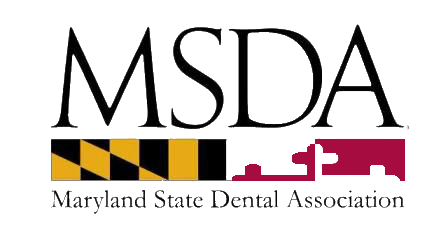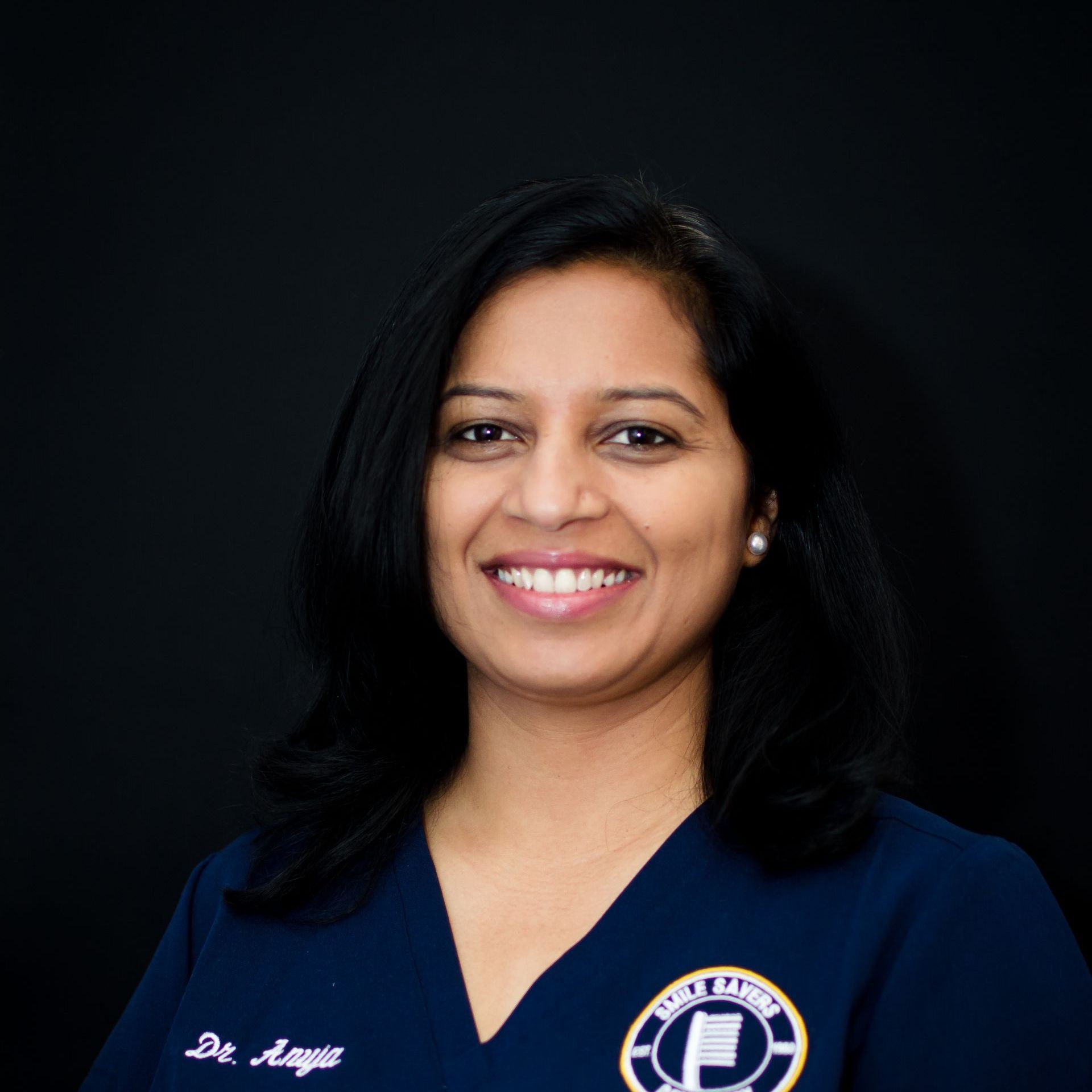Dental Checkup In Columbia, MD
Smile Savers Dentistry is Your Partner in Dental Health
We at Smile Savers Dentistry understand how important it is to maintain excellent oral health in order to have a lifetime full of confidence. Our practice, led by Dr. Anuja Patel, is dedicated to providing dental care that meets the needs of each patient. The Dental Checkup is one of our cornerstone services. It's a comprehensive exam designed to keep teeth and gums in good health.
Why Dental Checkups are Essential
Schedule Your Dental Checkup Today
Do not wait until you feel pain or discomfort in your mouth to consult a professional. Take proactive steps to maintain a healthy, beautiful smile in the future by scheduling a dental examination at Smile Savers Dentistry. Call us to schedule your appointment today and see the difference that our personalized approach can make.
What to Expect During Your Dental Checkup
You can expect to receive a thorough examination from our team at Smile Savers Dental, as well as personalized care. What happens at a dental examination?
- Medical History Review: We will begin by reviewing your medical records and any changes to your dental health that have occurred since your last appointment. You must inform us about any medication you are taking and any health conditions which may affect the treatment.
- Examining Your Teeth and Gums. Dr. Patel will examine both your teeth and gums to check for any signs of decay, periodontal disease, or other dental problems. We will also assess your jaw and bite alignment to detect any problems.
- If necessary, X-rays: X-rays can be a useful tool to detect dental problems that may not have been visible in a visual exam. We will take X-rays if necessary to give you a complete picture of your oral health.
- Professional Cleaning: Our dental hygiene professionals will thoroughly clean your teeth to remove tartar and plaque. This procedure helps to prevent gum disease and cavities. It also leaves your teeth feeling clean and fresh.
- Treatment Planning: Based on the results of your exam, we will develop a customized treatment plan that addresses any dental problems and maintains your oral health. It may also include additional treatment recommendations or a change in your oral hygiene regimen.
Choose Smile Savers Dental for the Benefits
You can be assured that Smile Savers Dentistry will provide you with a high-quality service. Our practice offers many benefits.
- Our team is experienced and caring: Dr. Patel and his team are dedicated to providing exceptional care. Your comfort and satisfaction are our top priorities at every stage of your dental journey.
- Modern Facility: Our dental office has the latest in technology and amenities, ensuring a comfortable experience for all of our patients. We use the latest techniques, from digital X-rays and advanced treatment options to provide superior dental care.
- Patient-centered Approach: Smile Savers Dentistry treats you as more than a patient. You are part of the dental family. We listen to you, answer all your questions, and include you in every decision.
- Convenient Scheduling: We know that your time is precious, so we offer flexible schedules to fit your hectic lifestyle. We strive to make appointments that are convenient and timely, whether you need an emergency dental treatment or a
routine dental checkup.
Caring, Personalized Dentistry in Columbia, Maryland
We help patients of all ages achieve and maintain their ideal oral health and we would love to help you, too. If you need a dentist in Columbia, Ellicott City or surrounding areas of Maryland, call Smile Savers Dentistry at (410) 730-6460.
Frequently Asked Questions about
DENTAL CHECKUPS
Why Do I Need Regular Dental Checkups?
For good oral health, regular dental checkups are essential. You should have regular dental checks for several reasons.
Early detection of dental problems. Regular dental examinations enable your dentist to detect potential dental problems early, before they turn into major issues. It is possible to detect oral cancer, tooth decay, and gum disease. Early detection can lead to less expensive and invasive treatments.
Preventive care: Professional teeth cleaning is part of dental checkups. This removes plaque and tartar that can't be removed by regular brushing and flossing. This prevents tooth decay, gum disease, and cavities.
Dr. Patel or a dental hygiene specialist can give you advice on how to brush and floss properly during your dental checkup. You can ask them about any concerns and get personalized advice tailored to your oral health.
Dental exams can identify bad habits that could be harming your oral health. Some of these habits are teeth grinding (bruxism), smoking, nail biting and chewing hard objects or ice. Your dentist can give you advice on how to minimize the impact of these habits on your oral hygiene.
Regular checkups will allow Dr. Patel to monitor the condition of existing dental work. They can look for signs of wear or deterioration or the need for replacement or repair.
Oral health and overall health are closely related. Checkups at the dentist can reveal potential health problems. Symptoms of oral health can indicate diabetes, vitamin deficiency, hormonal imbalances or immune disorders. If necessary, your dentist may refer to a specialist.
When it comes to your oral health, prevention is better than cure. Regular dental exams can help you maintain a healthy, beautiful smile. They will also allow you to catch problems early and get the treatment needed.
How Often Should I Get a Dental Checkup?
Dental checkups are recommended every six months, but the frequency can be adjusted depending on your dental health and needs. As a guideline, a dental examination is recommended every six months. This schedule will allow your dentist to monitor the health of your mouth, perform professional cleanings and detect potential problems as early as possible.
Certain factors may determine the frequency of dental visits for some individuals:
Oral health conditions. If you've had a history with gum disease, tooth decay or any other oral health issue, your dentist might recommend that you visit more often to monitor your condition closely and take preventative measures.
Medical conditions can have a negative impact on your oral health. Diabetes and immune disorders are two examples. Dr. Patel may recommend more frequent dental visits in such cases to address any concerns you may have about your oral health.
Dental work: Dr. Patel recommends more frequent dental checkups if you have dental restorations such as crowns, bridges or implants to ensure the integrity of these and to address any issues quickly.
Children and older adults might require more frequent dental examinations. Regular visits are important for children's dental development. They can help ensure that they have good oral hygiene and preventive treatments such as fluoride and dental sealants. Adults over 50 may experience oral health issues related to their age, including dry mouth and gum recession. These conditions require more attention.
Note that these are only general guidelines. Your dentist will decide the frequency of your checkups according to your needs and your oral health. You can establish a good checkup schedule by communicating regularly with your dentist.
Can Dental Checkups Prevent Oral Health Issues?
Dental checkups are important in preventing dental problems. Regular dental checkups are a great way to prevent oral health issues.
Early detection and early intervention: Regular dental examinations enable your dentist to detect potential oral health problems before they become more serious. Dr. Patel can provide the appropriate treatment by detecting early signs of oral infection, gum disease or tooth decay. Early intervention can lead to more effective and less invasive treatment options.
A dental hygienist will perform professional cleaning of the teeth during dental checkups. This procedure removes tartar and plaque that is difficult to remove with regular brushing or flossing. Dental checkups prevent gum disease, tooth decay and cavities by removing these deposits.
Oral hygiene guidance: Dr. Patel or a dental hygienist can provide guidance on proper oral hygiene techniques during dental checkups. You can ask any questions or express concerns and receive personalized advice tailored to your needs. You can reduce your risk of oral health problems by improving your oral hygiene.
Fluoride and dental sealants: A dental checkup is a great opportunity to apply fluoride and perform preventive treatments like applying fluoride and dental sealants. Dental sealants protect the chewing surfaces on the back teeth from bacteria that cause decay. Fluoride treatments strengthen tooth enamel, making it more resistant against decay. These measures can reduce the risk of decaying teeth and cavities.
Dentists can educate you on the impact of lifestyle habits on your oral health during dental checkups. The dentist can discuss habits like smoking, eating poorly, teeth grinding, and poor oral hygiene. Your dentist can prevent dental problems associated with unhealthy habits by educating you and guiding you to adopt healthier ones.
Regular dental checkups can help you catch problems early and receive preventive treatment. You will also get valuable advice on how to maintain good oral health. Preventing more serious oral health problems and maintaining a healthy mouth is essential.
What Is Included in a Dental Checkup?
A dental checkup usually involves several components to assess and evaluate oral health. Dental checkups can vary in specific procedures depending on your dentist and individual needs. Here are some of the common components:
Examining: The dentist examines your teeth, gums and tongue to look for signs of oral problems, such as oral infections or oral diseases. The dentist may use a dental explorer or a small mirror to examine your gums and teeth.
X-rays may be taken at the time of your check-up. The X-rays give a detailed view of the teeth, their supporting structures and other areas that are not visible in a visual examination. They can detect problems like decay between teeth and bone loss.
A dental hygienist performs a professional cleaning of the teeth during a checkup. This involves using specialized instruments to remove plaque and tartar from your teeth. The dentist will polish your teeth in order to remove surface stains.
Gum Health: Your gums are crucial to your overall oral health. Your gum health will be assessed by the dentist or hygienist measuring the space between your teeth and gums (called periodontal pocket). This measurement can help determine the severity and presence of gum disease. You may also be asked to check for signs such as bleeding, inflammation or gum recession.
Oral Cancer Screenings: These screenings are usually performed in conjunction with a dental examination. The dentist will examine the oral tissues including your lips, tongues, cheeks and throat as well as the floor and roof of your mouth to check for signs of oral carcinoma or pre-cancerous lesions.
Dr. Patel will evaluate the alignment of TMJs (temporomandibular joint) and your bite. They will look for signs of jaw joint problems, tooth grinding (bruxism), and bite problems.
Dr. Patel will give you oral hygiene instructions, such as how to brush, floss, and use any other tools or products beneficial to your oral health.
Treatment Plan: The dentist will create a plan for treatment based on your concerns and any issues that arise from the evaluation and examination. The dentist will discuss any recommended procedures, treatments or lifestyle changes needed to correct oral health issues.
It is important to remember that specific procedures and orders may differ depending on your dental practice and individual needs. Dental checkups help maintain good oral health, and they can also detect any problems early on to avoid further complications.
Are Dental X-Rays Included in a Regular Checkup?
As part of your regular dental examination, you will often receive a set of dental x-rays. However, the frequency of these x-rays and their necessity can vary based on the individual and the dentist’s professional judgment.
Dental x-rays can provide diagnostic information not seen during a visual exam. They can reveal problems such as decay, infection, bone loss, impacted teeth, and more. Dentists can make accurate diagnoses with X-rays, and then develop treatment plans.
Dental x-rays are needed depending on several factors. These include your oral history, your age, any risk factors and the presence or absence of symptoms. Dentists use guidelines to determine the frequency and type of x-rays. They also take into consideration the needs of the patient.
Dental x-rays may be taken on new patients to determine their oral health baseline and to identify any issues. Periodically, x-rays are recommended to monitor your oral health and assess the effectiveness or ongoing treatment.
If you are at low risk for dental problems, and your oral hygiene is stable, then your dentist will reduce the frequency. Your dentist will take into account factors like your age, oral health, and whether you have any symptoms or signs of oral problems.
You should discuss with your dentist your concerns, and inquire about the frequency and necessity of dental x-rays at your next regular checkup. You can get detailed information from them and ask any questions about the procedure.
What is a Dentist Looking For During a Dental Checkup?

Dr. Patel will assess your oral health during a dental examination and look for any issues. What a dentist will look for is:
Tooth Decay - The dentist will examine your teeth to check for any signs of decay such as visible cavities, discoloration or areas of softer enamel.
Gum Disease: Your gums' health is vital. Gum disease is detected by the dentist if there are signs such as swelling, redness or pockets between gums and teeth.
Oral cancer: Your dentist will perform an oral cancer screening, which includes examining your lips, tongue and cheeks as well as the floor and roof your mouth.
Dental Restorations: The dentist will check the condition of your dental fillings or crowns or bridges to make sure they are in good working order and do not need repair or replacement.
Bite Alignment and Jaw health: The dentist will evaluate your bite (the way your teeth fit together) and your TMJs (TMJs). They are looking for signs of malocclusion (bad bite), teeth grinding (bruxism) or jaw joint disorders.
Dental X rays: An X ray can be taken to see your teeth and jaw in greater detail. X-rays can help your dentist find problems that are not visible to the naked eye, like tooth decay in between teeth, bone erosion, or impacted wisdom teeth.
Plaque and Tartar: Your dentist or dental hygienist will check for plaque and tartar buildup (calculus), which can cause tooth decay and gum diseases.
Dr. Patel will assess your oral hygiene habits, such as how well you floss and brush your teeth. The dentist may offer advice on how to brush and floss your teeth properly, or address habits that could be harmful to your oral health.
Existing Dental Issues - If you are concerned about your dental health or have had previous treatment, the dentist will evaluate the effectiveness and progress of the treatments.
Dr. Patel will review the results of the examination and discuss with you any concerns or issues that may have arisen. If necessary, a treatment plan will be created. The dentist may suggest additional procedures, treatments or lifestyle changes in order to correct any oral health issues detected.
Regular dental checkups are important because they allow your dentist to monitor your oral hygiene, detect any problems early and give you the appropriate care that will maintain your oral well-being and prevent further issues.
How Long Does a Dental Checkup Take?
 Button
ButtonThe length of a dental examination can vary depending upon several factors. These include the procedures performed, your oral health and the dental office. A routine dental examination usually takes 30 minutes to 1 hour.
This is a general time breakdown during a dental examination:
Initial Evaluation and Exam: This phase includes discussing your oral history, any concerns you may have and answering any questions. The dentist will examine your teeth, gums and oral tissues. This step usually takes between 5 and 10 minutes.
X-Rays: Additional time is required to process and take dental x rays if they are needed. It can take anywhere from 10 to 20 mins, depending on how many and what type of x rays are being taken.
Teeth cleaning: Professional teeth cleaning is usually performed as part of a dental examination. A dental hygienist uses specialized tools to remove tartar and plaque from your teeth. The process usually takes between 20 and 30 minutes. However, it may vary depending on the individual's needs and how thorough they want to be.
Consultation and treatment planning: The dentist will review the findings and make recommendations after the cleaning and examination. If necessary, he may also develop a plan of action. During this stage, the dentist will discuss any issues detected, explain treatment options and answer your questions. This discussion may take a variety of time depending on your concerns and the complexity of the issue.
Please note that the time estimates above are only approximate and may vary depending on factors such as individual factors or dental practices. Additional procedures or treatments can be performed at the same time, which may extend the duration of your checkup.
It's important to let Dr. Patel know in advance if you have any concerns or time constraints about your dental exam. They will be able to provide you with accurate information, and try to accommodate your needs.
Do Dental Checkups Hurt?
 Button
ButtonDental checkups shouldn't be painful in general. A dental checkup's purpose is to evaluate your oral health and detect any problems, as well as provide preventive care. Some people may feel mild discomfort during the dental checkup. A dental checkup can cause some mild discomfort.
A dental hygienist will use special tools to clean your teeth. If you have sensitive or large buildup, then you may experience some discomfort. The discomfort is temporary and usually minor.
Dental X-rays. Dental x-rays involve placing a digital sensor or film in your mouth. This may cause some discomfort because of the pressure and positioning. The discomfort is usually brief and easily tolerated.
Gum Evaluation: A periodontal probe may be used by the dentist or hygienist to measure the space between the gums and the teeth (periodontal pocket). The process is usually painless. However, if your gums are inflamed or sensitive, you might feel some discomfort.
If you feel any discomfort, it's important that you tell Dr. Patel or a dental hygiene professional. You can ask them to adjust their technique or take extra measures to ensure that you are comfortable.
It's important to let Dr. Patel know if you suffer from dental anxiety or have a low threshold for pain. You can ask about strategies to manage your anxiety, or options for pain relief such as numbing creams or anesthetics.
Regular dental exams are important for good oral health. During the dental checkup, you may experience some discomfort. However, this is usually temporary and minimal. The long-term benefits from preventive care outweigh the discomfort.
Today, take charge of your dental health! Regular dental care is beneficial. Schedule your next checkup. Prevent problems before they occur by being proactive. Book an appointment with Dr Patel today. Your smile deserves to be treated with the best possible care. Prioritize your dental health now to ensure a lifetime of confidence in your smile.









